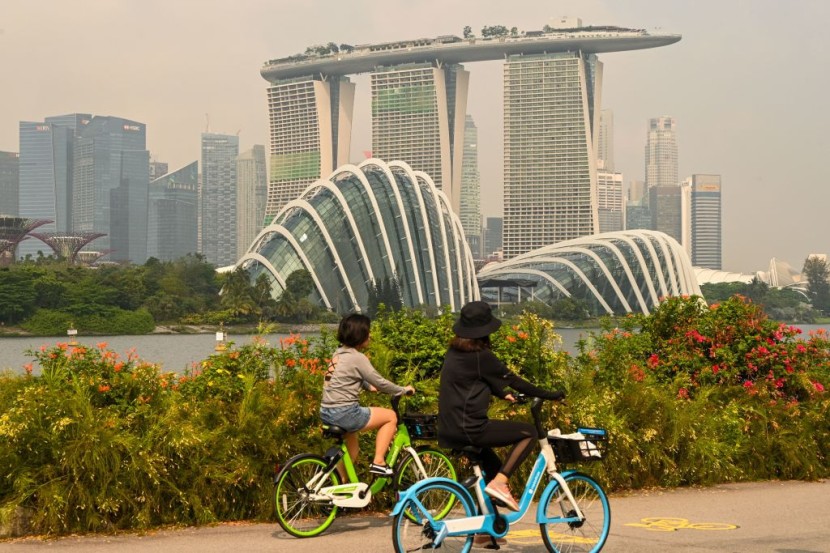
Singapore executed Saridewi binte Djamani, a 45-year-old woman convicted for trafficking about 31 grams of pure heroin, Friday (July 28). Her hanging became the first for a woman in almost two decades for the island city-state.
The previous woman who was hung for drug trafficking was 36-year-old hairdresser Yen May Woen in 2004.
According to Singaporean law, a person is to be sentenced to death for trafficking more than 500 grams of cannabis and 15 grams of heroin. The Singaporean Central Narcotics Bureau said the amount of heroin she was caught with was "sufficient to feed the addiction of about 370 abusers for a week."
Another convict, Mohammed Aziz bin Hussain, was hanged two days prior for trafficking around 50 grams of heroin, according to the Associated Press.
The narcotics watchdog added both prisoners were accorded due process, including appeals of their convictions and sentences, as well as petitions for presidential clemency.
Efforts to Abolish the Death Penalty
However, human rights groups, international activists, and the United Nations have urged the government of Prime Minister Lee Hsien Loong to halt executions for drug offenses, condemning its ineffectiveness as a deterrent to larger drug traffickers.
Despite this, Singaporean authorities insisted capital punishment is a must to curb drug demand and supply for their tiny island nation.
We have confirmed that two executions will be carried out in #Singapore this week, on Wednesday (26 July) and Friday (28 July), including the first known execution of a woman in around 20 years.
— Transformative Justice Collective (@tjc_singapore) July 23, 2023
Transformative Justice Collective (TJC), a Singaporean group advocating for the abolishment of capital punishment, said a new execution notice has been issued to another prisoner for Aug. 3, the fifth one for this year alone.
The group added 15 people were executed for drug offenses since Singapore resumed hangings in March 2022 after a pause during the COVID-19 pandemic.
It was said the next prisoner to be executed was an ethnic Malay citizen who worked as a delivery driver before his arrest in 2016. He was convicted in 2019 for trafficking 50 grams of heroin and his appeal was dismissed last year.
The group said the man had maintained in his trial that he believed he was delivering contraband cigarettes for a friend to whom he owed money, and he didn't verify the contents of the bag as he trusted his friend.
However, the Singaporean High Court ruled their ties were not close enough to warrant the kind of trust he claimed to have had for his friend.
While the court found he was merely a courier, the man still had to be executed because prosecutors did not issue him a certificate of having cooperated with them, the group added.
TJC also said it strongly condemned "the state's bloodthirsty streak," repeating its calls for an immediate moratorium on the use of the death penalty.
Today, Singapore’s authorities hanged a man. On Friday, they plan to execute a woman. It’s time for Singapore’s killing spree to stop before its reputation is permanently damaged. It’s still not too late to grant mercy to Saridewi Djamani.
— Richard Branson (@richardbranson) July 26, 2023
Other critics also say Singapore's harsh policy only punishes low-level traffickers and couriers, typically recruited from marginalized groups with vulnerabilities. One of the most well-known critics of Singapore's capital punishment was Virgin Group boss Richard Branson, who said the death penalty was not a deterrent against crime.
"Small scale-drug traffickers need help, as most are bullied due to their circumstances," he added.
They added the country was also lagging behind its neighbors with the trend of moving away from capital punishment for drug-related crimes, as well as the legalization of some of it, like Thailand's recent legalization of cannabis.
Malaysia, Singapore's closest neighbor, became the third country in the ASEAN region to abolish the death penalty altogether after Cambodia and the Philippines.
As Halimah Yacob's term of office as president is about to expire, there is interest within the city-state about the position of various candidates on the death penalty.
© 2025 HNGN, All rights reserved. Do not reproduce without permission.








